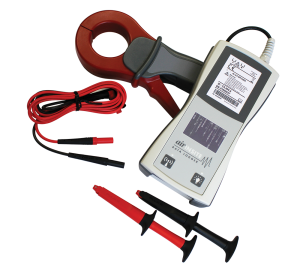 CompAir air audits can keep all compressed-air systems working efficiently
CompAir air audits can keep all compressed-air systems working efficiently
August 29, 2018 REDWIRE is news you can use from leading suppliers. Powered by FRASERS.
Posted by Compair Canada Inc. div. of Gardner Denver
Air and Gas Compressors including Hydrovane, Rotary Vane Compressors, Rotary Screw Compressors to 350hp, Oil Free and Oi... Read more
Subscribe
Free REDWIRE e-newsletter

Air audits are just one of the many services that CompAir's worldwide professional network provides.
CompAir Canada is more than a provider of compressed air systems for industrial users. The company is a team of experts who know how to keep customers’ products operating at peak effectiveness. One way CompAir serves clients is with air audits, or formal assessments of companies’ compressed-air needs.
With its worldwide service network of engineers and other trained professionals, CompAir brings expert air auditing right to any business’ doorstep.
The top five targets
An air audit is the ideal way to begin the process of upgrading or replacing compressor networks, or enhancing the energy performance of existing compressed air systems. The purpose is to identify the company’s current level of energy use and figure out its compressed-air requirements. The complexity of an audit depends on the company’s individual needs.
CompAir’s method is to attach a data-logging unit to every compressor in the network for a specific amount of time. The auditor then uses the gathered information to analyze such items as air-pressure requirements, power consumption, and airflow rate. Next, CompAir engineers recommend the proper size and mix of fixed- and regulated-speed compressors; they also determine whether the business needs to switch to a newer, better machine, improve the entire system, or acquire better compressor control.
Air audits of industrial compressed air systems have five main targets:
- Air demand and supply. Ensuring that the company has the right equipment for its needs;
- Plugging air leaks. Preventing wasted energy and money by stopping leaks;
- Avoiding over-pressurization. Lowering system pressure if necessary, to reduce wasted energy and risk of leaks;
- Replacing bad piping. Improving efficiency with correctly sized pipes without excessive bends or tees; and
- Maintaining the system. Changing filters, separators, and lubricants before they clog up and cause damage or pressure loss.
CompAir air auditors use leak-detection surveys to identify problems quickly, so users can take immediate remedial action. These experts also offer improvement recommendations to reduce leaks and save costs.
In addition to having an audit, it is wise to check for air leaks in maintenance routines on a regular basis.
For more information, contact CompAir.
Share
Posted by Compair Canada Inc. div. of Gardner Denver
Air and Gas Compressors including Hydrovane, Rotary Vane Compressors, Rotary Screw Compressors to 350hp, Oil Free and Oi... Read more